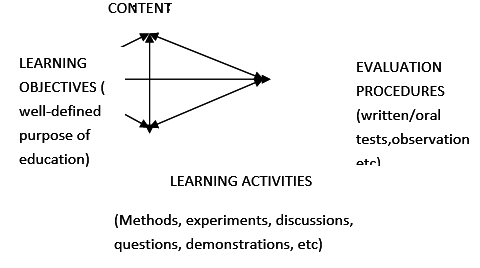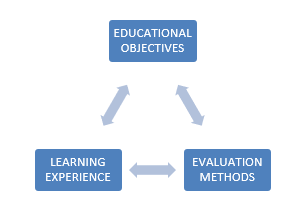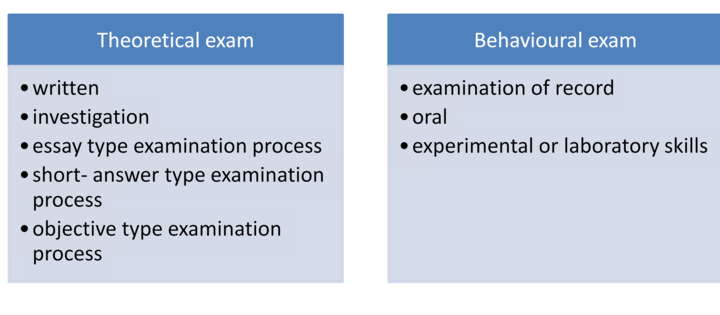- Home/
- CTET & State TET (Earlier - TEACHING)/
- CTET/
- Article
Science Study Notes on Evaluation
By BYJU'S Exam Prep
Updated on: September 25th, 2023

Science is very important subject for those aspirants who are preparing for CTET, UPTET, REET and other TET exams. This subject is also important for DSSB, KVS and other teaching examinations. Here we are going to provide you with science pedagogy study notes. In this article, we would read related to the aim and objectives of science.
Table of content
After deciding ‘what should we teach’, the content and ‘how should we teach,’ the method, the next step in the teaching-learning process is ‘how to know that the children have understood what we have taught them, i.e., the evaluation process.
Evaluation is an integral part of a teaching-learning process. It is the process of assessing the attainment of the predetermined objectives of the teaching-learning process. It is an act or a process that allows one to make a judgment about the desirability or value of a measure.
Stufflebeam and others (1968) define it as, “Evaluation is a process of delineating, obtaining and providing useful information for judging decision alternatives”.
Evaluation is the sum of the qualitative measure of student’s achievement, quantitative description of student’s achievement and value judgment by the teacher.
According to NCERT, “evaluation is the process of determining the extent to which an objective is being attained, the effectiveness of the learning experiences provided in the classroom, how well the goals of education have been accomplished.”
According to NCF 2000, Evaluation is a systematic process of collecting, analyzing and interpreting evidence of a student’s progress and achievement both in cognitive and non-cognitive areas of learning to take a variety of decisions. Evaluation thus involves gathering and processing information and decision-making.
Patel (1984) defines it as, “Evaluation is any systematic, continuous process of determining the extent to which specified educational objectives, previously identified and defined are attained.
- The effectiveness of the learning experiences provided in the classroom,
- How well the goals of education have been accomplished.
By now you must have realized that a test is a tool which helps in measuring for evaluating various abilities of the students.
Aspects of Educational Evaluation (Patel,2001):

Modern Concept of the Evaluation:
The modern or the new concept of evaluation was put forward by Dr Benjamin Bloom. His concept is based upon a triangular model showing the relationship between educational objectives, learning experiences, and evaluation procedures. Learning experiences hard device that they have a closer building on the educational objective interview is elevation procedures hard to be so devised that they measure student’s achievement in terms of educational objectives. There is inter-relatedness between objectives, learning experiences and evaluation. Educational objectives are to be defined in terms of behavioural changes observed in three aspects of personality – cognitive, conative and effective.

Purposes of Evaluation:
- Providing feedback to each child about his progress.
- Giving feedback to a teacher about the effectiveness of his teaching.
- Providing information for matching individuals to folder education and employment opportunities.
- Motivating people to work hard.
- Adapting instruction
- Providing guidance
- Appraising the school programme
- Motivating students
- Diagnosing learning difficulties
Types of Evaluation:
We have so far seen that evaluation has to be a continuous process for the proper evaluation of a student. This brings us to two types of evaluation.
Formative Evaluation
- Nitko (1983) defines it as, “Formative evaluation is concerned with judgments made during the design and/or development of a programme which is directed towards modifying, forming or otherwise improving the programme before it is completed”.
- This means that it is an ongoing process of systematic evaluation of the learner’s achievements. This is done during the instructional phase and helps the teacher know about the learner’s progress and helps the teacher reflect on the effectiveness of the learning experiences provided.
- Formative evaluation is immediate and hence considers limited content and short-range objectives. It gives immediate feedback and hence provides scope for the modification of the methods of teaching and provisioning of learning experiences.
Summative Evaluation
- Nitko (1983) defines it as, “Summative evaluation describes judgments about the merits of an already completed programme, procedure or product”. E.g. final examination helps in summative evaluation. During a summative examination, a teacher can cover larger portions and also check for higher-level objectives.
- A teacher can also check for the integration of the knowledge which was taught as separate subunits, during the teaching-learning process.
- For the summative evaluation, the teacher can ask a question of higher difficulty level – application type questions to the students.
- Ex: a teacher can ask the following question: ‘If you are given an iron rod, how will you decide, whether it is a plain iron rod or a magnetic rod?’ In this question, the student has to make use of the knowledge of the properties of magnets, and the laws of magnetism.
- Summative evaluation is long-range and comprehensive. It considers the course in its totality.
Steps of Evaluation Process:
- Selection of objectives
- Clarification of objectives
- Knowledge of situations i.e. suitable environment
- Test papers and other devices are selected in such a manner that they may be capable to provide knowledge of expected behaviour to students directly or indirectly.
- Formation of evaluation devices
- Use and explanation of obtained material to get knowledge of a change in the behaviour of students.
Characteristics of the Good Evaluation Test:
- Validity – It should be valid. It means that the test undertakes the same measurement.
- Reliability – It should function consistently i.e. it should be reliable.
- Objectivity – The test should be objective i.e. the examiner’s judgment should not affect the scoring.
- Comprehensiveness – It should be comprehensive. It means that the questions should be connected with the whole curriculum.
- Practicability – It should be practicable. It should be useful.
- Interpretability – It should be easily interpretable.
- Clearness – the language of the given questions should be simple, clear, and concise.
Means of Evaluation in Science Teaching:
Examination System in Science:

Proper evaluation acts as a feedback to the teacher on the teaching-learning experiences. She provides. It helps teachers, students and their parents in knowing their academic development. Evaluation helps find out the effectiveness and utility of the activities planned in the school. This helps the making necessary changes and improvements in the curriculum. A teacher should encourage and guide students to do self-evaluation for developing the analyzing skills for better learning.



